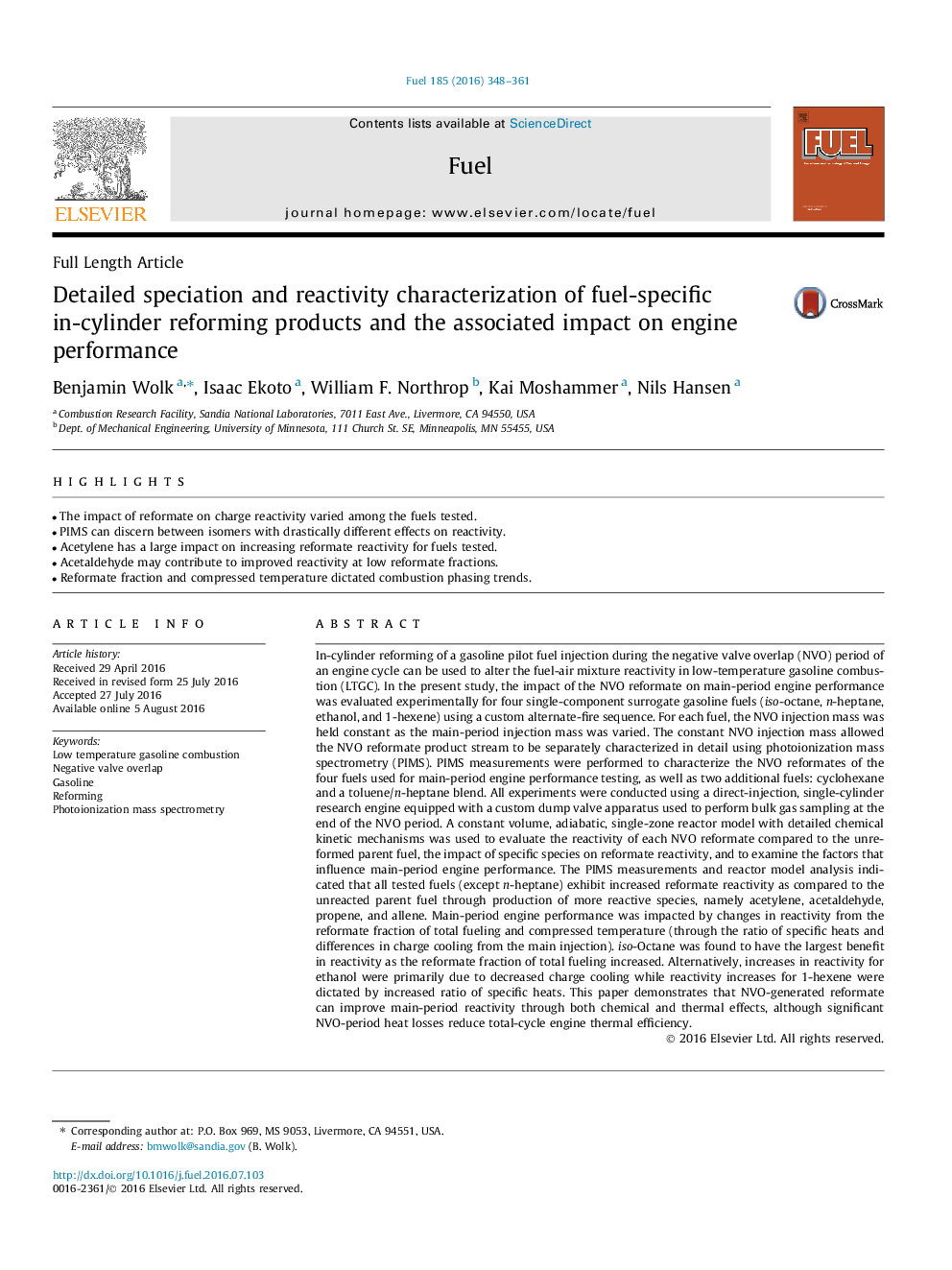| کد مقاله | کد نشریه | سال انتشار | مقاله انگلیسی | نسخه تمام متن |
|---|---|---|---|---|
| 6632779 | 461088 | 2016 | 14 صفحه PDF | دانلود رایگان |
عنوان انگلیسی مقاله ISI
Detailed speciation and reactivity characterization of fuel-specific in-cylinder reforming products and the associated impact on engine performance
ترجمه فارسی عنوان
تعریف دقیق و ویژگی واکنش پذیری محصولات اصلاح شده در سیلندر با سوخت خاص و تاثیر آن در عملکرد موتور
دانلود مقاله + سفارش ترجمه
دانلود مقاله ISI انگلیسی
رایگان برای ایرانیان
کلمات کلیدی
موضوعات مرتبط
مهندسی و علوم پایه
مهندسی شیمی
مهندسی شیمی (عمومی)
چکیده انگلیسی
In-cylinder reforming of a gasoline pilot fuel injection during the negative valve overlap (NVO) period of an engine cycle can be used to alter the fuel-air mixture reactivity in low-temperature gasoline combustion (LTGC). In the present study, the impact of the NVO reformate on main-period engine performance was evaluated experimentally for four single-component surrogate gasoline fuels (iso-octane, n-heptane, ethanol, and 1-hexene) using a custom alternate-fire sequence. For each fuel, the NVO injection mass was held constant as the main-period injection mass was varied. The constant NVO injection mass allowed the NVO reformate product stream to be separately characterized in detail using photoionization mass spectrometry (PIMS). PIMS measurements were performed to characterize the NVO reformates of the four fuels used for main-period engine performance testing, as well as two additional fuels: cyclohexane and a toluene/n-heptane blend. All experiments were conducted using a direct-injection, single-cylinder research engine equipped with a custom dump valve apparatus used to perform bulk gas sampling at the end of the NVO period. A constant volume, adiabatic, single-zone reactor model with detailed chemical kinetic mechanisms was used to evaluate the reactivity of each NVO reformate compared to the unreformed parent fuel, the impact of specific species on reformate reactivity, and to examine the factors that influence main-period engine performance. The PIMS measurements and reactor model analysis indicated that all tested fuels (except n-heptane) exhibit increased reformate reactivity as compared to the unreacted parent fuel through production of more reactive species, namely acetylene, acetaldehyde, propene, and allene. Main-period engine performance was impacted by changes in reactivity from the reformate fraction of total fueling and compressed temperature (through the ratio of specific heats and differences in charge cooling from the main injection). iso-Octane was found to have the largest benefit in reactivity as the reformate fraction of total fueling increased. Alternatively, increases in reactivity for ethanol were primarily due to decreased charge cooling while reactivity increases for 1-hexene were dictated by increased ratio of specific heats. This paper demonstrates that NVO-generated reformate can improve main-period reactivity through both chemical and thermal effects, although significant NVO-period heat losses reduce total-cycle engine thermal efficiency.
ناشر
Database: Elsevier - ScienceDirect (ساینس دایرکت)
Journal: Fuel - Volume 185, 1 December 2016, Pages 348-361
Journal: Fuel - Volume 185, 1 December 2016, Pages 348-361
نویسندگان
Benjamin Wolk, Isaac Ekoto, William F. Northrop, Kai Moshammer, Nils Hansen,
